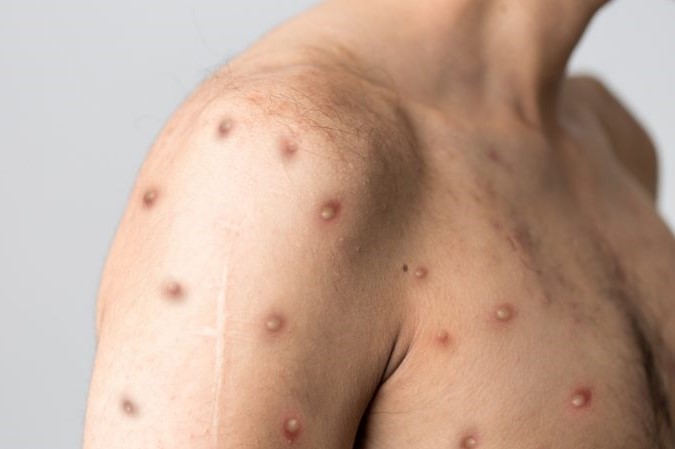
Monkeypox: genesis, symptoms, diagnosis and treatment
Poxvirus, a rare disease, is caused by monkeypox virus, which is structurally related to human smallpox virus and causes a similar, but usually milder disease
Monkeypox, like monkey pox virus, is a member of the Orthopoxvirus group
Despite its name, non-human primates are not a reservoir of the virus.
Although the reservoir is unknown, the main candidates are small rodents (e.g. squirrels) in African rainforests, mainly in West and Central Africa.
Human disease occurs in Africa sporadically and in occasional outbreaks.
Most of the reported cases have occurred in the Democratic Republic of Congo.
Since 2016, confirmed cases have also been reported in Sierra Leone, Liberia, the Central African Republic, the Republic of Congo and Nigeria, which suffered the largest recent outbreak.
A recent 20-fold increase in incidence is believed to be due to the cessation of smallpox vaccination in 1980; people who were vaccinated against smallpox, even more than 25 years earlier, have a reduced risk of monkeypox infection.
Monkeypox cases are also increasing in Africa as people increasingly invade the habitats of animals carrying the virus
In the United States, an outbreak of monkeypox occurred in 2003, when infected rodents from Africa, imported as pets, spread the virus to domestic prairie dogs, which later infected human subjects in the Midwest.
The epidemic involved 35 confirmed, 13 probable and 22 suspected cases in six states, but there were no deaths.
Monkeypox is probably transmitted from animals through body fluids, including salivary or respiratory droplets or contact with wound exudate.
Person-to-person transmission is fairly ineffective, and is thought to occur mainly through large respiratory droplets with prolonged face-to-face contact.
The overall rate of secondary infection following contact with a known human source is 3%, and up to 50% of these have been reported in individuals living with or in close contact with a person infected with monkeypox (1).
No cases of transmission in hospital settings have been documented.
The majority of patients are children.
In Africa, the mortality rate varies between 4 and 22%.
Clinically, monkeypox is similar to human smallpox; however, skin lesions usually assume a cluster configuration and lymphadenopathy occurs in monkeypox but not in human smallpox.
Secondary bacterial infections may develop in the skin and lungs.
Clinical differentiation of monkeypox from classical smallpox and varicella (a herpes virus, not a poxvirus) can be difficult.
The diagnosis of monkeypox is based on culture tests, PCR (Polymerase Chain Reaction), immunohistochemistry or electron microscopy, depending on the availability of tests.
There is no proven and safe treatment for monkeypox virus infection (Monkeypox)
The treatment of monkeypox is supportive. Potentially useful drugs include
- The antiviral drug tecovirimat (FDA [US Food and Drug Administration] approved for the treatment of smallpox)
- The antiviral drugs cidofovir or brincidofovir (CMX001)
- All these drugs are active against monkeypox in vitro and in experimental models.
However, none of these drugs have been studied or used in endemic areas to treat monkeypox.
Reference
Nolen LD, Osadebe L, Katomba J, et al: Extended human-to-human transmission during a monkey pox outbreak in the Democratic Republic of the Congo. Emerg Infect Dis 22(6):1014-1021, 2016. doi: 10.3201/eid2206.150579
Prevention
The new JYNNEOS smallpox vaccine was licensed by the Food and Drug Administration (FDA) in 2019 for the prevention of both monkey pox and smallpox based on immunogenicity and efficacy data from animal studies.
The Advisory Committee on Immunisation Practices (ACIP) is currently evaluating the JYNNEOS vaccine for the protection of persons at risk of occupational exposure to orthopoxviruses.
JYNNEOS is not publicly available.
Past data from Africa suggest that the smallpox vaccine is at least 85% effective in preventing monkey pox, because the monkey virus is closely related to the virus that causes smallpox.
For further information:
Centers for Disease Control and Prevention (CDC): Monkeypox
CDC: Monkeypox and Smallpox Vaccine Guidance
Read Also:
Emergency Live Even More…Live: Download The New Free App Of Your Newspaper For IOS And Android
HIV Evolving ‘Into Milder Form’
Managing Chickenpox In Children: What To Know And How To Act
Monkeypox Virus: Origin, Symptoms, Treatment And Prevention Of Monkey Pox


